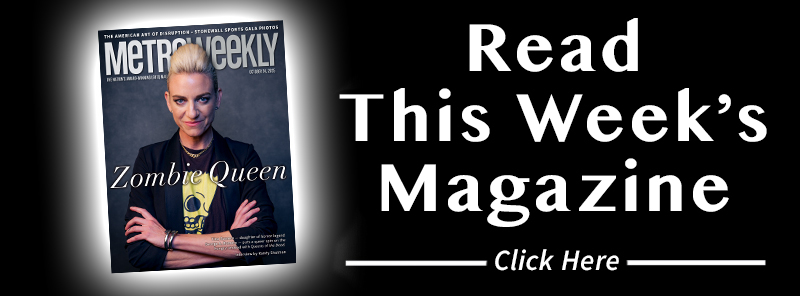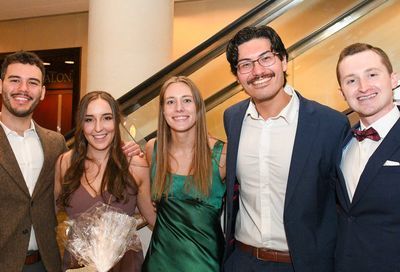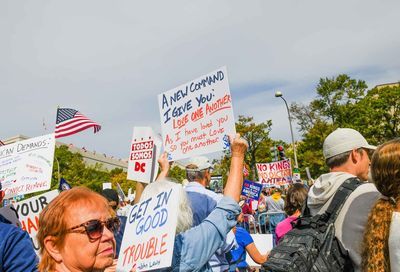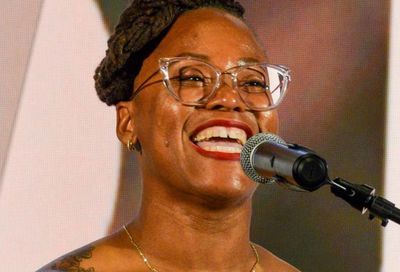Searching for Dialogue
Inflammatory language impedes frank discussions of LGBT and race issues
It seems that the issue of relations between the LGBT community and the black community has remained contentious. It’s even more problematic if you toss the black LGBT community in there. In this country, the dialogue gets so charged so quickly that inevitably any attempt at productive discussion is usually shut down.
The tension reached fever pitch in the aftermath of Proposition 8 , and most recently when the District of Columbia debated and approved marriage equality. One of the memes used by anti-gay carpetbagging pastor Harry Jackson, the black face of the National Organization for Marriage, was to blame “wealthy gay activists” (code for “rich gay white men”) for trying to keep the people of D.C. — the black voters, of course — from having their say about marriage at the ballot box. However, equality ruled as last week Mayor Adrian Fenty signed the Religious Freedom and Civil Marriage Equality Amendment Act of 2009, ushering in marriage rights for same-sex couples.
It was a significant day. As this victory was celebrated, it was disturbing and sad to read the commentary by David Kaufman of Transracial.net, “Co-Opted: Marriage Equality’s Civil Rights Rip-Off ,” at the Huffington Post. It’s yet another attempt to further divide the black and LGBT communities with incendiary language directed toward the one group that he accurately describes as invisible — those who are black and gay.
Kaufman, who is black, makes several tired, overheated arguments that unfortunately overshadow extremely valid and genuine concerns about how race is affecting many facets of LGBT-equality issues. For those who are black and not heterosexual, it’s common to face negative comments from the religious black community, but in the LGBT community we are often considered suspect members of the “family.”
Alternately, we may be seen as:
- too often focused on social-justice issues affecting minorities even though there may be points of intersection;
- giving blacks in the closet a pass because of the difficulty of coming out;
- simply tokens of diversity within the visible LGBT movement and not qualifying participants in its overall monochromatic leadership.
But having to take blame for carrying water for elements of the LGBT community perceived as insensitive about race from yet another overwrought black voice is getting stale. Most inflammatory was this statement: ”Most crucially, this entire sham renders Black LGBTs unnecessarily disheartened, conflicted and increasingly invisible. As for those who are seen, they’re rarely heard unless puppeting the mantras of larger LGBT Inc. like some white-washed army of assimilationist Homo-Toms.”
”Homo-Toms.” That’s not the way to raise issues in a constructive manner. The commonality in the discussions about homophobia is that the most relevant factors in anti-gay votes cast are whether someone is a frequent churchgoer and what their level of education is, not race. There are people like Kaufman who telegraph the fallacy that civil rights is a zero-sum game, or that the black civil-rights movement has been appropriated by gays when Dr. King himself shaped his movement based on the non-violent teachings of Gandhi.
Has Kaufman also forgotten the existence of Bayard Rustin, who made the March on Washington happen? Again, black and gay — and yet Kaufman renders him invisible, something he charges others with.
To quote Rustin: “Indeed, if you want to know whether today people believe in democracy, if you want to know whether they are true democrats, if you want to know whether they are human rights activists, the question to ask is, ‘What about gay people?’ Because that is now the litmus paper by which this democracy is to be judged.” Meanwhile, many of us who are black and gay find ourselves shaking our heads as we watch both sides speak past one another.
Pam Spaulding is the founder of the award-winning LGBT blog, Pam’s House Blend (pamshouseblend.com).
Support Metro Weekly’s Journalism
These are challenging times for news organizations. And yet it’s crucial we stay active and provide vital resources and information to both our local readers and the world. So won’t you please take a moment and consider supporting Metro Weekly with a membership? For as little as $5 a month, you can help ensure Metro Weekly magazine and MetroWeekly.com remain free, viable resources as we provide the best, most diverse, culturally-resonant LGBTQ coverage in both the D.C. region and around the world. Memberships come with exclusive perks and discounts, your own personal digital delivery of each week’s magazine (and an archive), access to our Member's Lounge when it launches this fall, and exclusive members-only items like Metro Weekly Membership Mugs and Tote Bags! Check out all our membership levels here and please join us today!























